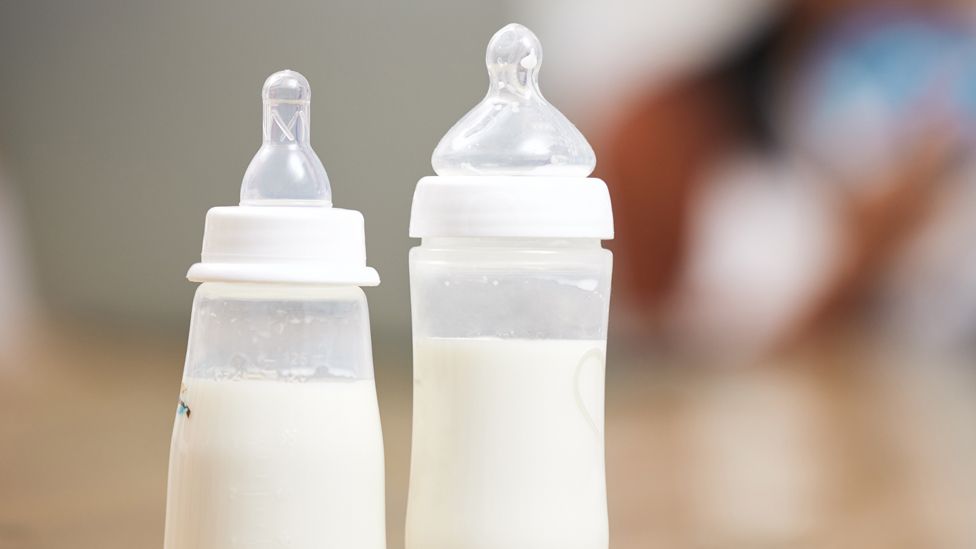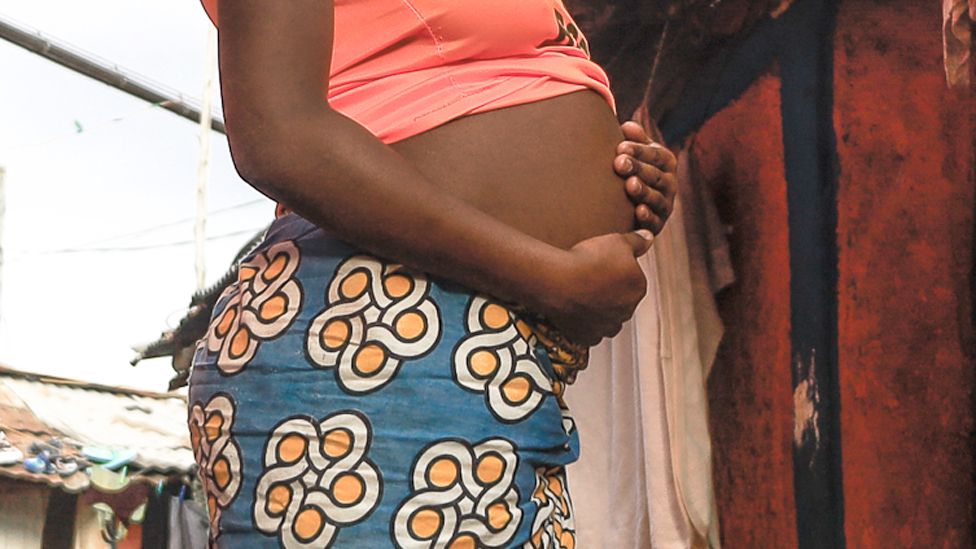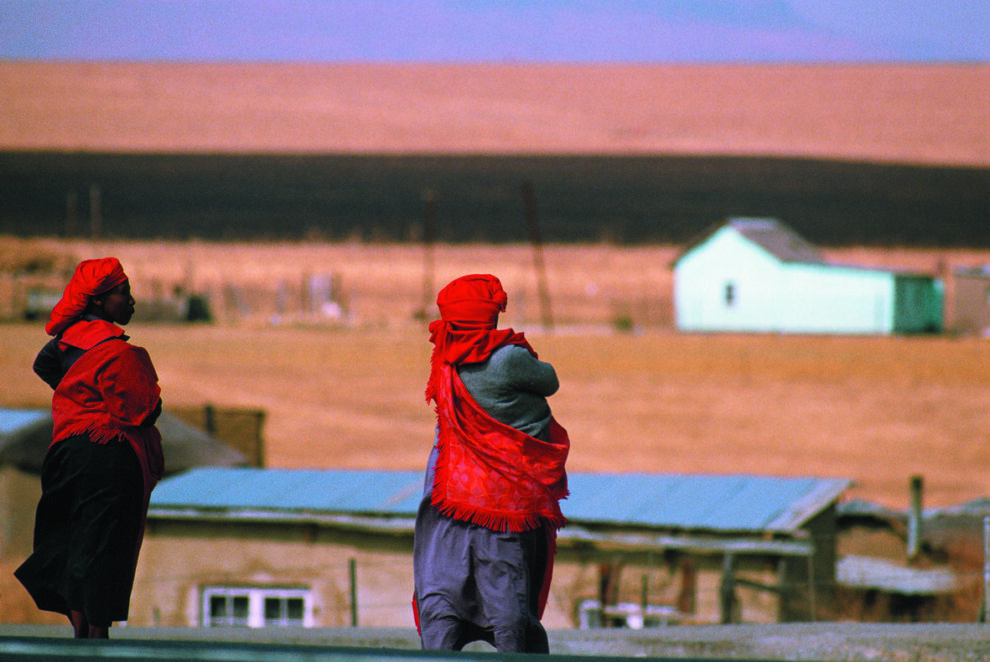Four women living with HIV in Kenya have each been awarded $20,000 (£16,000) in damages for being sterilised without their informed consent. They have spoken to the BBC about their experiences.
The women fought a nine-year legal battle – and their names have been changed to protect their identities, which were not revealed during the case at the High Court.
“It has ruined my life,” Penda told the BBC about the surgery she underwent shortly after having twins at the state-owned Pumwani Maternity Hospital in the capital, Nairobi.
The procedure is called a bilateral tubal ligation (BTL) – when a woman’s fallopian tubes are cut, tied, burned, clipped or partly removed, closing them and preventing future pregnancies.
The father of her twins left before they were born. Her husband had died a few years earlier of HIV-related complications. She is distressed that she will never find another partner: “Who will marry me if they know I can’t give birth?”
Penda knew she was HIV-positive when she became pregnant so had sought medical advice. At the time, pregnant women with HIV were encouraged to give birth by caesarean section and to not breastfeed their babies to prevent mother-to-child transmission of the virus.
These are expensive routes to go down for many from poorer backgrounds. Nowadays most maternity care in Kenya is free. But it has not always been the case.
After giving birth, Penda says she was told to exclusively use formula milk. She says she was assured she was entitled to get free food for herself and the babies, but only if she showed proof that she was using family planning.
“As a single mother, that shocked me. I was already struggling with stigma. I didn’t know what else to do,” she says.
To help Penda obtain this proof, the hospital nutritionist referred her to a community health worker who told her to report to a clinic where personnel from Marie Stopes, Kenya’s largest and most-specialised sexual reproductive health organisation, ran a family planning programme.
Here Penda was given a form, which she signed, to have a BTL. As she cannot read, she says she did not know she had given her consent to be sterilised.

Neema related a similar experience at the Pumwani, which is Kenya’s largest public maternity hospital.
She already knew her positive HIV status by the time she was expecting her fourth child. She was worried about infecting her unborn baby.
She says she was told by a nutritionist there that if she did not agree to undergo a BTL after giving birth, she would not qualify to receive portions of cooking oil porridge and maize-meal flour, and that her maternity health bill would not be paid.
On the day of her delivery, before being taken to theatre, Neema said the nurse on duty advised her of the need to plan her family since she already had three children.
The nurse told her to undergo a BTL and she was given a piece of paper to sign agreeing to both a caesarean and the tubal ligation.
“I didn’t know what it meant. I thought it was ordinary family planning,” Neema told the BBC.
“If they had explained the procedure properly to me, I wouldn’t have signed that paper.”
In Furaha’s case she remembers no discussion about family planning before she had her third child at the Pumwani Maternity Hospital.
She only recalls consenting to a caesarean section to prevent her from infecting her newborn with HIV – and then waking up in unbearable pain.
A nurse explained that she had also undergone the sterilisation procedure.
“I was too afraid to tell my husband what happened. I kept it to myself,” she told the BBC.
“When he found out, he became a total drunkard. He died after he was hit by a moving vehicle. These organisations destroyed my home.”
A fourth woman, Faraja, told the BBC she caved into pressure to undergo the BTL two months after delivering her third child.
As she was HIV-positive, she had been cautioned against breastfeeding her newborn. But without proof that she was using family planning – in particular a BTL – she was not able to receive free baby formula milk.
“I was desperate. My husband had left. My rent was due. What could I have done?” she asks.
Faraja told the Kenyan High Court that she attended a clinic where she underwent the procedure.
She was given a form to sign, but says that because she cannot read, she did not understand what she was signing. No-one explained to her that she had agreed to be sterilised, and she says she was not offered alternative family planning.

It is because health professionals did not explicitly explain what these women had agreed to that they won their case.
The High Court of Kenya ruled in September that this use of BTL without informed consent was a violation of the women’s fundamental rights, including the right to establish a family.
The damages they are to receive will be paid jointly by Marie Stopes International and the Pumwani Maternity Hospital as well as the medical charity Médecins Sans Frontières (MSF), which gave family planning advice.
Allan Maleche, executive director of Kelin Kenya, an HIV-rights group that represented them, says the judgement is very significant for HIV-positive women in Africa who have experienced pressure to undergo sterilisation.
“For a very long time, cases that were filed in South Africa, in Namibia, had the difficulty making the link between the tubal ligation and the HIV status. The significance of this case is that it reaffirmed the fact that it is wrong,” he told the BBC.
A Marie Stopes spokesperson in Kenya told the BBC by email that the case had been a long and difficult ordeal for all those involved.
“We welcome a resolution after nearly a decade. Informed consent has always been integral to everything we do.
“As a member of the global reproductive rights community, we understand the stigma that people living with HIV continue to face. We will continue to undertake rigorous training and monitoring to ensure that the highest standards are adhered to, and we will never be complacent about the care we deliver.”
MSF France maintains that it never performed, nor is it currently performing, medical sterilisations in Kenya. It says if the patient opts to undergo a BTL, its role is to counsel, to inform and refer them to selected facilities.
“We acknowledge the part of the responsibility for what happened to the women and restate as a medical organisation, our commitment to the patient informed consent process,” Dr Hajir Elyas, MSF’s project co-ordinator in Kenya, told the BBC.
The Pumwani Maternity Hospital did not respond to the BBC’s invitation to comment.
There is no accurate data about how many women living with HIV in Kenya have been sterilised without their informed consent.
However, a 2012 study carried out by the African Gender and Media Initiative – Robbed of Choice – documented the experiences of 40 women who had been coerced into sterilisation. Of these, only five successfully filed a constitutional petition.
Mr Maleche says the women chose to file constitutional petitions, rather than criminal cases, because this type of litigation has a bigger impact.
“A criminal case would only either lead to imprisonment, a payment of fines. There would be no benefits that would go to the women in terms of monetary compensation,” he says.
But the women say their case was not just about compensation. They say the High Court judgment has validated their demand for justice.
Their lawyer, Nyokabi Njogu, agrees: “How do you compensate for a compounding violation?
“They just wanted an acknowledgement that this happened. They don’t want women who have suffered like them to continue in that suffering.”
Source : BBC











